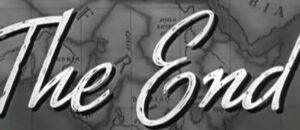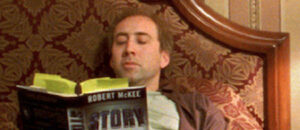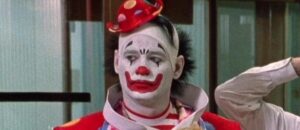Entertainment history is filled with stories of actors, singers, and other artists whose struggles with drug or alcohol abuse ultimately took their lives. For our Roundtable this week, we remember some of the great talents lost to addiction.
David Krauss
Judy Garland has been classified by many as the “world’s greatest entertainer.” She was also one of the hardest working women in show business. Garland was just two-and-a-half-years-old when she toddled onto the stage of her father’s movie theater in Grand Rapids, Minnesota to spontaneously perform a chorus of “Jingle Bells.” The audience reaction was so enthusiastic, she reportedly just kept singing until her dad finally had to carry her kicking and screaming off the stage. That auspicious debut spawned a career that would continue almost non-stop for the next 45 years, first as part of a vaudeville act with her two older sisters, then as one of Hollywood’s brightest musical stars, and finally as arguably the greatest live performer in theatrical history. (Her legendary 1961 Carnegie Hall concert won multiple Grammys and continues to be popular to this day.) An accidental prescription drug overdose took Garland’s life at age 47… ironically the same age as another iconic vocalist, Whitney Houston. Though pills may have caused Garland’s death, many feel the beloved performer finally just wore out after decades of overwork.
Nobody gave themselves to an audience like Garland, whose thrilling concerts were often characterized as revival meetings, and no performer seemed to crave and appreciate the boundless love that spilled over those footlights more than she. Garland didn’t just perform songs, she lived them, and that emotional connection often made listeners feel as if she was singing to them personally. The patented throb in her voice during sad songs led many writers to label her a tragic figure. They would cavalierly interpret the “If happy little bluebirds fly beyond the rainbow, why oh why can’t I?” coda of her signature song, “Over the Rainbow,” as the prevailing theme of Garland’s supposedly sad life. What often gets lost in discussions of Garland is the unadulterated joy she brought to so many and the ebullience that emanates from her soul when she sings. That’s what I think of whenever I think of Judy Garland, and her work has enriched my life exponentially over the years. Call me square, but whenever I crave a pick-me-up, I head straight to YouTube to watch Garland belt out a classic number. She instantly elevates my spirits. You want chicken soup for the soul? Watch yourself some Judy Garland, folks!
Was she a trainwreck off stage? At times. Aren’t we all? Maybe she was more than most, but when you’re put on a treadmill at the age of 3 and never allowed to get off for the rest of your life, who wouldn’t occasionally careen off the rails? But let’s look at the history. MGM demanded she lose weight as a teenager, so they prescribed “diet pills” for her. They were really amphetamines, and she became hooked on them, necessitating the need for barbiturates to allow her to sleep. Of course, she became hooked on those, too. After The Wizard of Oz rocketed her to superstardom, the studio sadistically overworked her for a decade, causing severe physical and emotional stress that in turn spurred a couple of “cry for help” suicide attempts. She married five times, always striving to find someone to love her for herself and protect her from the vultures constantly pecking at her heels. She entrusted her money to others so she could concentrate on performing and they continually embezzled from her. By the end of her life, she was practically broke and forced to sing while in ill health because she desperately needed the money to support her family.
Those final sad months are supposedly chronicled in the new movie Judy starring Renée Zellweger. I hope it’s a sympathetic, compassionate portrait, not a sensationalized, exaggerated interpretation of a very difficult time in Garland’s life. Judy doesn’t deserve that. While she was alive, she constantly debunked the myth that her life was a tragedy. Her razor-sharp wit and self-deprecating humor were almost as famous as her peerless voice. (Lucille Ball of all people famously dubbed Garland “the funniest woman in Hollywood”!) Like the lyric of one of her signature songs, Garland’s consistent mantra was, “Forget your troubles. C’mon, get happy,” and if you watch more than a little of her work in her prime, happy is just how you’ll feel. You’ll also be dazzled and moved by one of the greatest performers of all time. “The rest of us will be forgotten,” Frank Sinatra once said. “Never Judy.”
Brian Hoss
Whenever I think that so many of the people who made and performed the vast majority of my music collection, including what I enjoy every day, are now dead – either dying young tragically, or just gone too soon under dark and nebulous circumstances – it’s frustrating to say the least. The last few years have been brutal in this way, and I even attended two concerts recently (The Smashing Pumpkins and Phil Collins) and wondered before, during, and after if the artists involved might not make it to 2020. On a lark, I once attended a George Carlin show that was full of great bits on death and dying, and sure enough, Carlin was himself in the recycle bin (the Windows desktop variety, as he termed it) within a few short months after.
I can get pretty resentful of these people (like, say, Chris Cornell), and it can take some time for that resentment to abate to a more tolerable level. With actors, it’s different. Their roles and techniques become familiar and classic, and yet I usually feel like they’re complete strangers with very practiced personas. Nevertheless, I miss them when they leave early or else, become so unstable that they can no longer perform.
One lost actor I enjoy and yet probably still take for granted without the resentment (maybe next decade) is Philip Seymour Hoffman. For me, his supporting roles are so easy to enjoy, especially Brandt in The Big Lebowski, Freddie in The Talented Mr. Ripley, and Art Howe in Moneyball. He made the sublime look easy, and I wish he was still making movies. (Cue resentment.)
Josh Zyber
I didn’t know much about Heath Ledger‘s personal life at the time, and yet when the news broke that he’d died at the age of just 28, my first assumption was to blame drugs. Sure enough, as more details came out, it was clear that he was the latest young talent to succumb to addition.
When Ledger first broke out as a star, Hollywood tried to mold him into the template of a typical pretty-boy dreamboat in movies like 10 Things I Hate About You (which I enjoy a lot!) and The Patriot (which I don’t, so much), but all along his performances hinted at greater depths the actor wanted to plumb. As he became more established, he got the chance to demonstrate his range. Of course, he’s most remembered now for his fabulous turn as The Joker in Christopher Nolan’s The Dark Knight, for which he was given a posthumous Oscar. In my opinion, the role he should have won for was Brokeback Mountain. (Ironically, he lost that one to another name on this list, Philip Seymour Hoffman.)
Ledger’s career felt like it was barely getting started when he died. One can only imagine the movies and performances we were deprived of.
Your Turn
How many of your favorite performers or artists also fell victim to problems with addiction?




Chris B
Chris Farley and Mac Miller.
Drugs aren’t cool.
Jon
I’ve always felt that if Farley had lived (and if he was given a chance) he would’ve shown himself to be a great dramatic actor.
David Krauss
There are too many others… Marilyn Monroe and Montgomery Clift spring immediately to mind. And of course James Dean.
Brett
An excellent write-up, David. I’m not really familiar with Garland’s life or work — mainly her sad decline — but your words put her in a new light. I might just take you up on that YouTube challenge.
David Krauss
Brett, that is music to my ears! 🙂 At the bottom of the appreciation piece I wrote about Garland that ran here yesterday, there’s an extended clip from her 1962 TV special. It’s probably the best representation of her abilities and aura at what was a high point in her concert career. Regarding her movies, if you haven’t seen her version of A Star Is Born, that’s a must-see. My great concern about the Zellweger movie (which I haven’t yet seen and am not sure I ever will) is that it will give people who are unfamiliar with Garland the wrong impression of what her life and career were like. Focusing on this final sad period may make for good drama, but it’s hardly a well-balanced or even accurate portrait of her.
Brett
Maybe my all-time most affecting performance by an actor is River Phoenix in Running on Empty. Those scenes with Martha Plimpton are just sublime. His later work in My Own Private Idaho is equally strong but it’s nowhere near the emotional powerhouse that ROE is for me. There’ll never be a celebrity death that hits me that hard. I’ll never forget the newscaster’s “A young Hollywood actor is dead. News at 11” teaser, and then being in disbelief that it was him. Like so many, drugs never even crossed my mind. I figured it was some undiagnosed medical condition or something. All these years later I’m still somewhat in disbelief. His career wasn’t exactly soaring at the time but one can’t help wondering where he would’ve gone if he’d lived. But that performance in ROE lives on and still dazzles me. And he also had charisma to spare. Along with DiCaprio, one of the truly Great Actors of my generation.
Pedram
At age fifty he wasn’t exactly young, and his death wasn’t caused by what most would consider a conventional addiction, but I would add Michael Jackson to this list of those gone too soon through drugs. It was especially unfortunate since he was on the brink of a spectacular fifty show comeback concert series.
Trond Michelsen
John Belushi and Phil Hartman. Drugs really, really sucks (for very different reasons in these cases)
Josh Zyber
AuthorWhile drugs may have been indirectly responsible for Phil Hartman’s death, he didn’t die of an overdose. His wife was an addict. She murdered him and killed herself after he threatened to leave her if she started using again.
Trond Michelsen
Exactly, which is what I meant by the “very different reasons”. Hartman was murdered by a drug addict who was high when she shot him, so I think it’s fair to place his death in the “drugs are bad, mmmkay”-category.
Josh Zyber
AuthorFair enough.
EM
Anton Yelchinʼs death at age 27 was apparently not due to self‐destructive tendencies but nevertheless was just as senseless. He was a fine actor with quirky charisma. Having watched him grow up on screen—he was a generation younger than I—his sudden passing while still fairly young (albeit accomplished) was like having a small hole torn out of oneʼs gut, like learning that a neighborʼs kid oneʼs known since he was a tyke has suddenly and absurdly died.